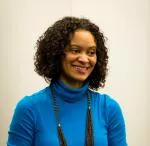
Badges of Oppression, Positions of Strength
Digital Black Feminist Discourse and the Legacy of Black Women’s Technology Use
Event Description
Black women have historically occupied a unique position, existing in multiple worlds, manipulating multiple technologies, and maximizing their resources for survival in a system created to keep them from thriving. I present a case for the unique development of black women’s relationship with technology by analyzing historical texts that explore the creation of black womanhood in contrast to white womanhood and black manhood in early colonial and antebellum periods in the U.S. This study of Black feminist discourse online situates current practices in the context of historical use and mastery of communicative technology by the black community broadly and black women more specifically. By tracing the history of black feminist thinkers in relationship to technology we move from a deficiency model of black women’s use of technology to recognizing their digital skills and internet use as part of a long developed expertise.
Notes from the Talk
In early work on Internet studies, research addressing people of color focused solely on lack of access to technology. However, scholars such as André Brock and Anna Everett have pointed out that many Black users operated in unrecognized spaces online, and were therefore rendered invisible in much early new media work. Since then, scholars have attempted to be more inclusive, but research often still assumes a homogenous group of Black internet users or focuses on Black men as the default.
In response, in her work, Dr. Catherine Knight Steele foregrounds the principles, practices, and products of Black feminists online. During her talk, Steele argued that, “the use of online technology by Black feminist thinkers has changed not only the outcome of Black feminist writing, but also has changed the technologies themselves.” Because of the history of systemic racism, Black women have had to develop “unique communicative and technological capacities” in order to survive. Steele therefore described Black feminist discourse online as a “natural outgrowth of a particular set of skills and obstacles acquired over time.” For example, she pointed out that Black women have not been swayed by bots, propaganda, or fake news in ways that other social groups have. Steele situated this fact in a longer history of “wisdom, labor, and ingenuity,” regarding Black women’s decision making for the greater good. She suggests that progressive thinkers should recognize this legacy and value Black women’s decision-making processes and social media expertise.
Three frameworks guide Steele’s research: intersectionality and the matrix of domination; Black technophilia; and hip-hop feminism. Influenced by these frameworks, Steele has developed a theory of Black digital feminist discourse. She suggests that this discourse: “prioritizes agency, reclaims the right to self-identity, has complicated allegiances, centralizes non-gender binary spaces, and is informed by a dialectic of self and community interests.” Furthermore, in the Black feminist digital space, Steele sees the conflation of public and private identities, and a complex relationship to capitalism. By performing critical technocultural discourse analysis of Black feminism online, Steele hopes to highlight the revolutionary potential of black feminist practice and principles.
notes by Donica O'Malley
About Catherine
Catherine Knight Steele is an Assistant Professor of Communication at the University of Maryland - College Park and the Director of the Andrew W. Mellon funded African American Digital Humanities Initiative (AADHum). As the director of the AADHum, Dr. Steele works to foster a new generation of scholars and scholarship at the intersection of African American Studies and Digital Humanities and Digital Studies. She earned her Ph.D. in Communication from the University of Illinois at Chicago. Her research focuses on race, gender, and media with a specific focus on African American culture and discourse in traditional and new media. She examines representations of marginalized communities in the media and how traditionally marginalized populations resist oppression and utilize online technology to create spaces of community. Dr. Steele has published in new media journals such as Social Media & Society and Television & New Media; and the edited volumes Intersectional Internet (Ed. S. Noble & B. Tynes) and the upcoming edited collection A Networked Self: Birth, Life, Death (Ed. Z. Papacharissi). She is currently working on a book manuscript about Digital Black Feminism.
Download original audio and video from this event.
Subscribe to the Berkman Klein events podcast to have audio from all our events delivered straight to you!